Oct 29, 2024 by Mark Dingley
Sustainable packaging is exploding. Gone are the days when paper and packaging decisions were made based solely on cost, functionality and consumer experience. Sustainability is now top of mind for everyone.
Consumers are demanding eco-friendly packaging. Bain & Company’s inaugural “Global Paper & Packaging Report” showed 71% of European consumers claim they want to buy sustainable products, and the same percentage of US consumers claim they want to buy products with as little packaging as possible.
Manufacturers have the power to propel the move to sustainable packaging. And that's precisely what these seven brands are doing. Pioneers in sustainable packaging, these brands are blazing a trail with new concepts and materials that are reshaping the packaging industry.
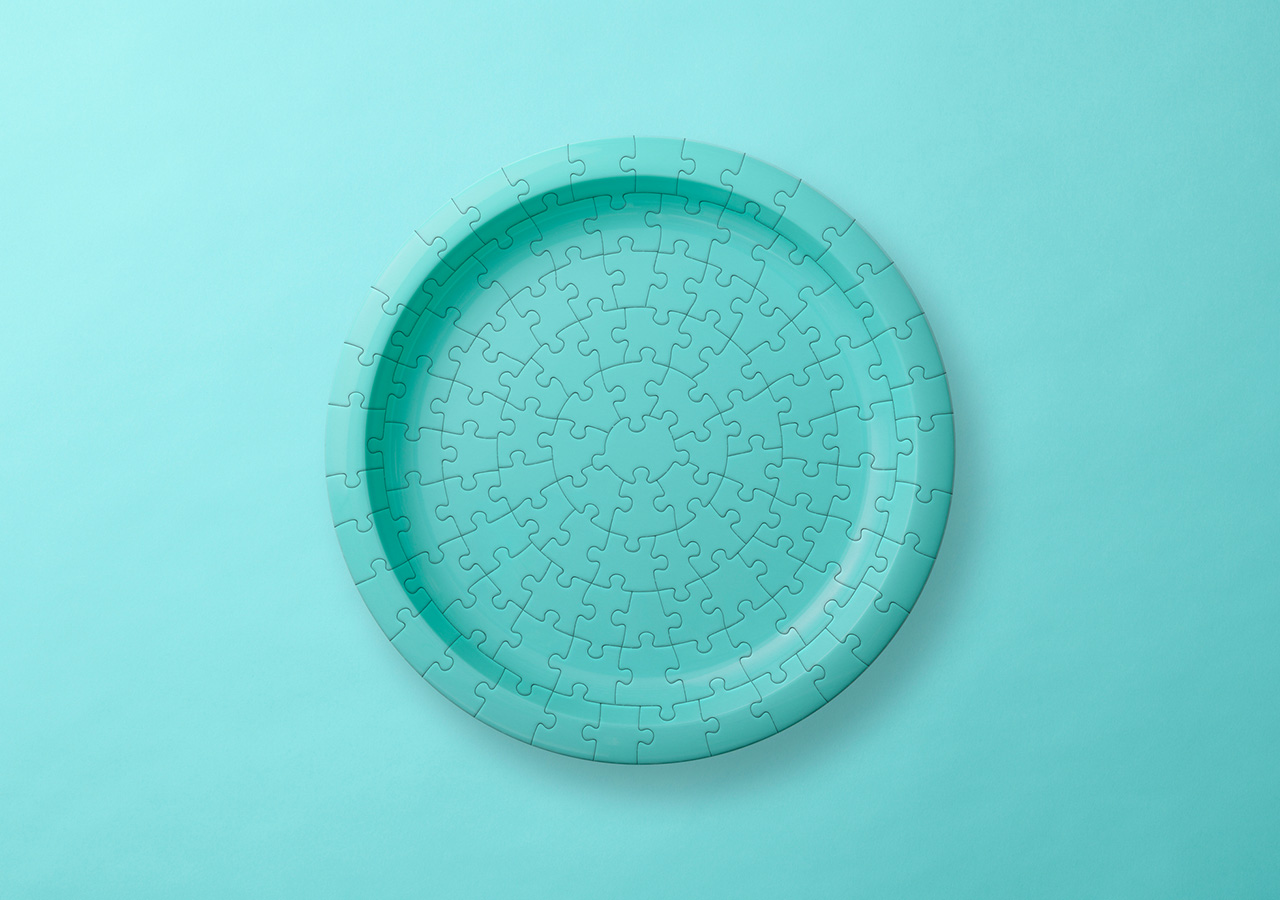
LUV Produce, a fresh produce brand that has evolved from the long-established Just Onions, is a pioneer in offering Australian supermarkets fresh produce in recyclable packaging.
LUV Produce’s packaging is 100% biodegradable cardboard, which allows produce to breathe and maintain its integrity throughout the transport process. Importantly for consumers, it also allows them to check the quality of the produce before buying.
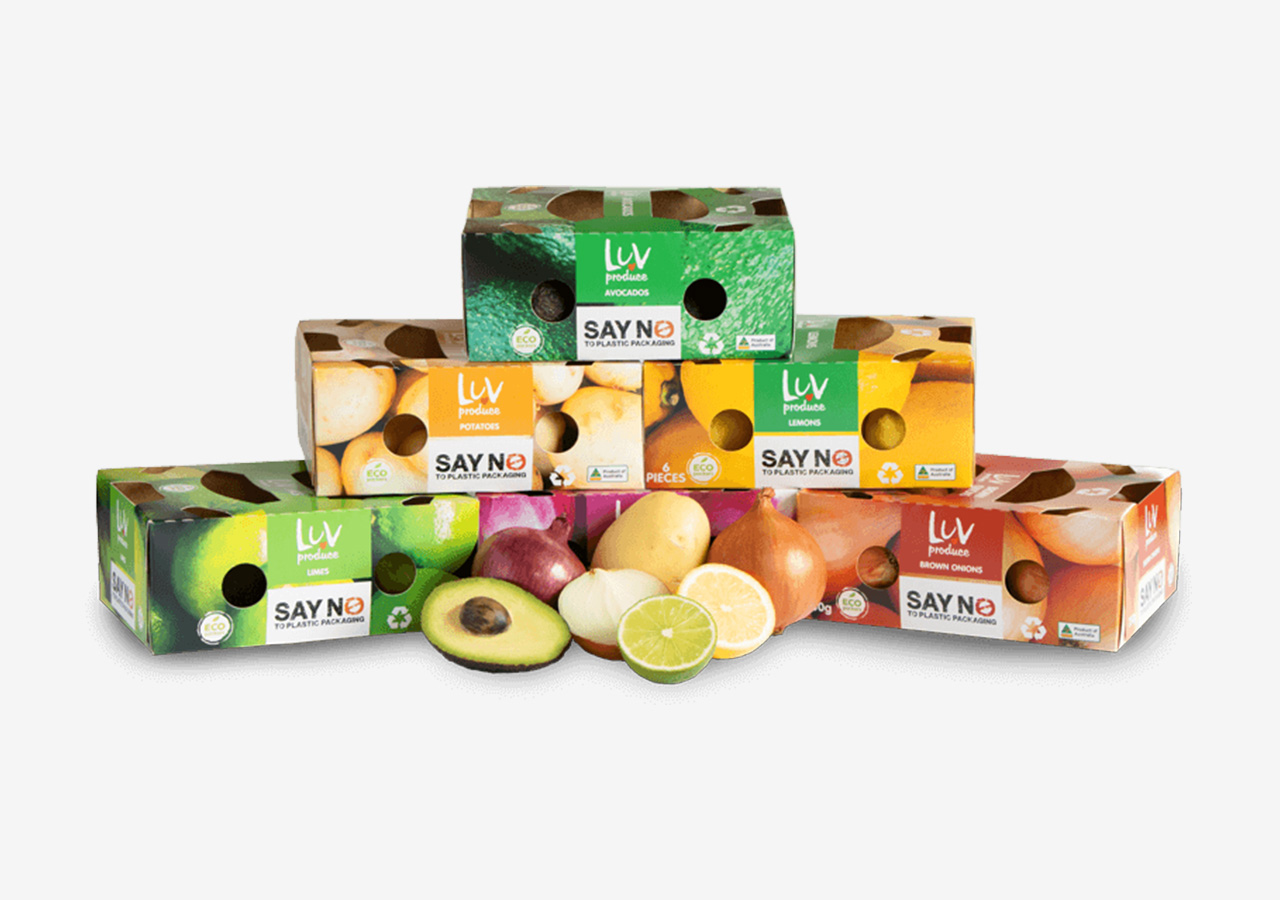
Image credit: https://www.luvproduce.com.au
Nestle's Smarties was the first global confectionery brand to switch from plastic to fully recyclable paper packaging in June 2020.
Two years later, Nestlé invited us to “Have a paper-wrapped break with KitKat” when it announced it would produce over a quarter of a million KitKat bars wrapped in paper in an exclusive partnership with Coles. The pack also contained a QR code that people could scan to have their say and give valuable feedback on the new paper packaging.
Since then, Mars Wrigley has followed suit with paper-based packaging for its Mars Bar, Snickers and Milky Way, and Cadbury Australia has transitioned to recycled soft plastic packaging.
Paper wine bottles have hit supermarket shelves in the UK thanks to Aldi. In March 2024, Aldi was the first British supermarket to launch two paper wine bottles as part of its own-label range.
The bottles, manufactured by British company Frugalpac, are made from 94% recycled paperboard lined with a food-grade pouch to contain the wine. Frugalpac launched the Frugal Bottle in 2020, claiming to be the world's first and only commercially available paper bottle for wines and spirits with a carbon footprint 84% lower than a glass bottle.
In Australia, Mother of Pearl Vodka's recent investment in a Frugalpac Frugal Bottle machine means that the country’s first paper bottle manufacturing facility will be available to liquor industry brands in 2025.
Cosmetics retailer Lush has been pioneering eco-friendly packaging since the very beginning. The company takes an unpackaged approach whenever possible, with 35% of its products being totally package-free or “naked”. Lush claims that its packaging-free products have saved over 13,800 tonnes of plastic from being produced.
For products that must be packaged, Lush uses recycled and recyclable materials. All plastic packaging it uses is made from 100% post-consumer recycled material.
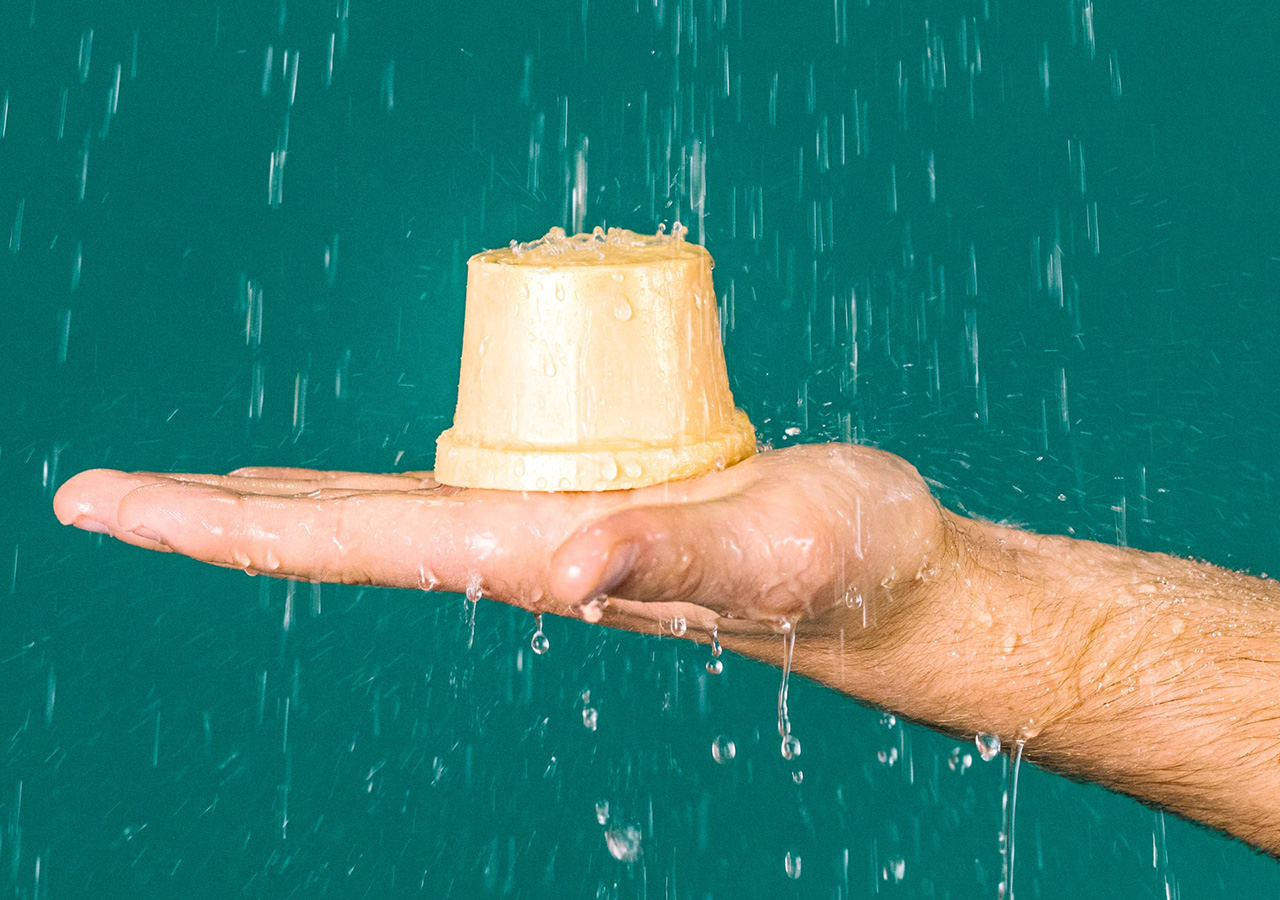
Image credit: https://weare.lush.com/lush-life/our-values/naked/
Food waste is a major problem in Australia. Each year, Australians waste around 7.6 million tonnes of food across the supply chain, costing up to $2,500 per household annually.
To help combat the issue, Farmers Union has launched a new initiative called “tub-aware” for its Greek Style Yoghurt, encouraging consumers to reduce food waste by repurposing yoghurt tubs to store and reinvent their leftovers.
The revamped and limited-edition design of its 1kg tub encourages consumers to be “tub aware” of food waste and includes an on-pack QR code for access to tips and recipes for using yoghurt to enhance leftover meals.
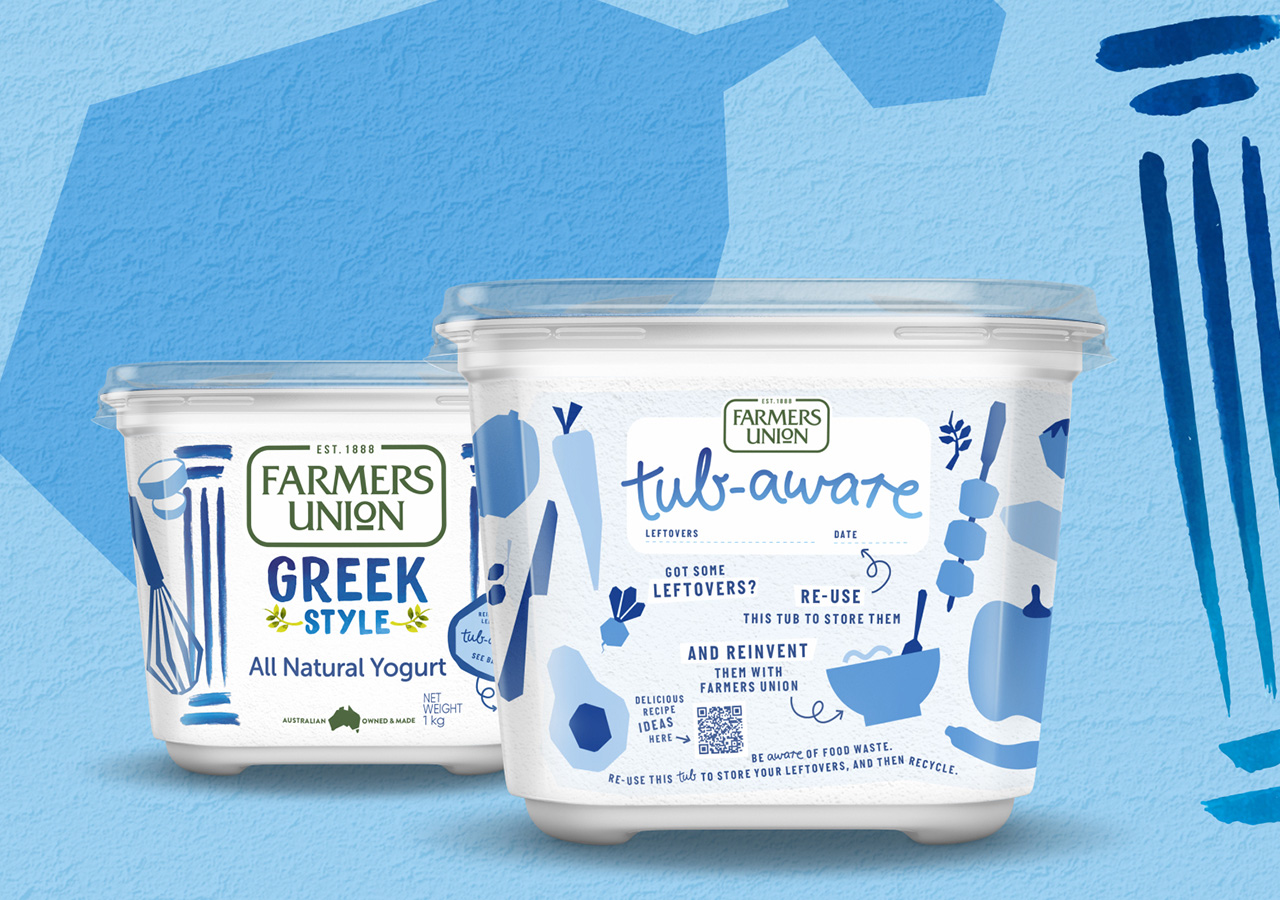
Image credit: https://www.farmersunionyogurt.com.au/tub-aware/
How do you reinvent an iconic piece of packaging like the Pringles tube? This packaging design has been a defining feature of the product since it was launched in 1967 in the USA.
Now, Kellanova Europe has launched the new “designed for recycling” Pringles tube, replacing the metal bottom with a paper fibre-based alternative. The new paper bottom means tubes are accepted in kerb-side recycling streams across Europe.
Designed with global packaging solutions leader Sonoco, the new tube retains the brand’s iconic cylindrical shape, enabling the crisps to remain stacked and protected. Consumers can reclose the tubes with the recyclable plastic lid to ensure the chips stay fresh after opening.
The new paper-based tube ticks the “Circularity by Design” guidelines from the European fibre-based packaging value chain, specifically the 4Evergreen Alliance.
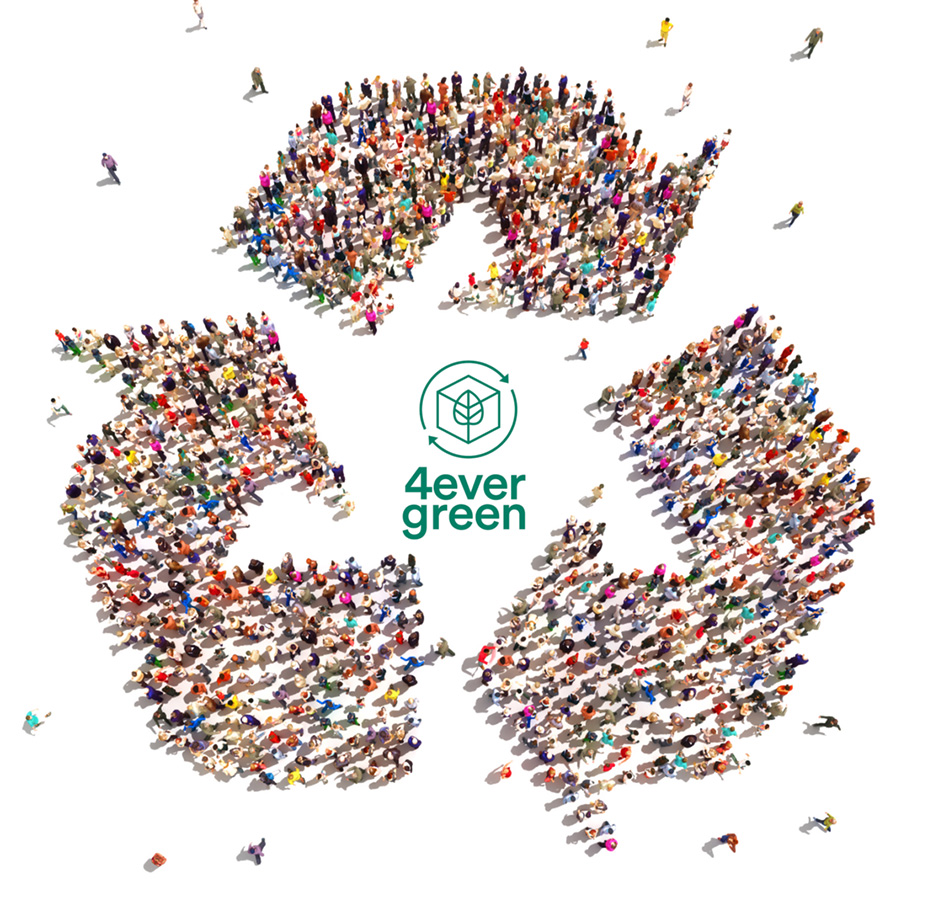
Image credit: https://4evergreenforum.eu
Since the 1970s, environmentalists have targeted plastic six-pack rings. Since then, most beverage companies have made their rings degradable, but for many, that's not going far enough because plastic rings are notorious for becoming a choking hazard for animals.
In 2018, Carlsberg set a new standard for responsible drinking by becoming the first major beer brewer to eliminate plastic rings. This bold move was estimated to reduce plastic waste by more than 1,200 metric tons annually, equivalent to the elimination of 60 million plastic bags.
Other brands quickly followed suit, with Coca-Cola, PepsiCo, CUB, and Lion among the beverage companies that have announced their intentions to ditch plastic rings as part of broader sustainability efforts.
You don’t have to make big pioneering changes to be sustainable. Often, small changes are better than no changes at all – just look at how Woolworths milk caps are making an environmental impact.
Ready to make a positive impact on the environment and your business? Discover why sustainable packaging is a game-changer from Woolworths Head of Packaging, Bryan McKay. Learn more.
Stay ahead of the curve with the latest insights: Explore the top packaging trends to watch in 2024.
.jpg)